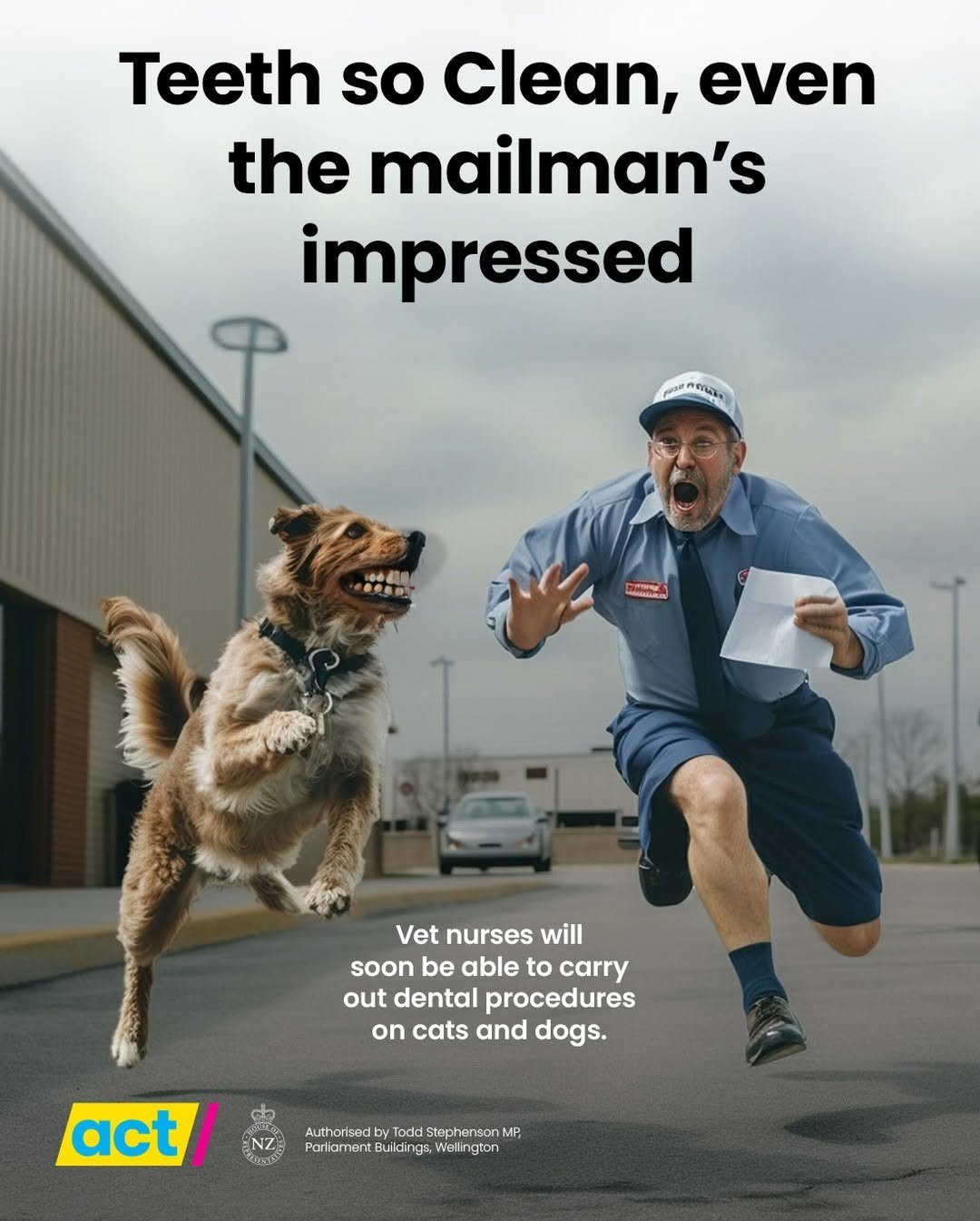
A University of Otago academic doubts the party’s explanation and says its use of generative artificial intelligence (AI) is "dehumanising".
On Sunday, the party uploaded a post to its social media channels, featuring a stock photo of a couple.
The photo’s file name was "Happy Maori [sic] couple sits comfortably in a cozy living light room, generated ai".
Queenstown-based Act list MP Todd Stephenson authorised the ad and said while AI was a useful tool, the party did not want to lose "the human touch".
"After Act used the image in a graphic, it was pointed out to us that the photo was likely AI-generated, and the listing on the stock image site confirms this."
Two other ads authorised by Mr Stephenson and posted to Instagram — including one featuring a dog with what appears to be human teeth — had also used stock AI images mistaken for real images, he said.

The image used in the ad appears to have been further altered, with the dog’s teeth made to look human.
Mr Stephenson said the party would now use a filter to avoid inadvertently using AI imagery.
"Our usual practice is to avoid using AI faces in our graphics, and we are now using filtering options in our stock image libraries to more easily identify non-AI images to use."
It was common for political parties to use stock imagery of paid actors and models without disclosure, he said.
"We don’t think either practice is inherently misleading — New Zealanders are smart enough to understand that images used in marketing are not always documentary photographs.
"Of course, Act would never use an actor or AI to impersonate a real person."

"I think it’s good that they say they don’t want to lose the human touch, they recognise people don’t like this," he said.
"But are they saying that those Instagram images fooled them?
"The comments are mocking them for using slop."
He said Act’s use of AI lowered the bar for political communication.
It was particularly "galling" the party had used an AI-generated Māori couple, given its promotion of the Treaty Principals Bill, he said.
He said the images were an example of "AI slop"— a term for low-quality computer-generated images which have flooded social media.












